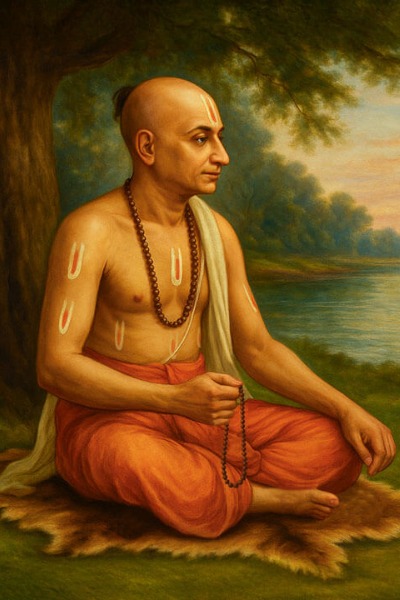
Personal info
Known for
Ultimate Talent
Gender
Male
Birthday
Location
Uttar Pradesh, India
Edit pageTulsidas
Biography
Tulsidas (circa 1532–1623) was a revered Hindu poet-saint, philosopher, and scholar, best known for his devotional works in Awadhi, a dialect of Hindi. He is considered one of the greatest exponents of the Bhakti movement and is especially renowned for his retelling of the Ramayana, which has had a profound influence on Indian culture, religion, and literature.
🌿 Early Life and Background
Tulsidas was born in Rajapur, in present-day Uttar Pradesh, to a Brahmin family. He lost his parents at a young age and was raised by relatives. From childhood, he exhibited a deep devotion to Lord Rama and showed extraordinary talent in poetry and religious scholarship.
He is said to have been deeply influenced by Bhakti ideals, emphasizing love, devotion, and moral integrity over ritualistic practices.
✍️ Literary Career
Tulsidas’s writings primarily focus on devotion to Lord Rama, blending spirituality, ethics, and poetic beauty. He wrote in vernacular Hindi, making religious texts accessible to common people.
Major Works:
Ramcharitmanas — His magnum opus, a retelling of the Sanskrit Ramayana in Awadhi, emphasizing devotion, morality, and dharma.
Hanuman Chalisa — A devotional hymn of 40 verses praising Lord Hanuman, widely recited across India.
Vinay Patrika — A collection of poems seeking the blessings of the divine.
Kavitavali and other smaller works — Including devotional songs and philosophical verses.
His works are celebrated for their clarity, emotional depth, and moral instruction, inspiring generations of devotees and poets.
🌺 Themes and Style
Tulsidas’s poetry reflects:
Bhakti (devotion) to Lord Rama
Moral values and dharma
Human emotions and divine love
Social harmony and spiritual upliftment
His style combines lyrical simplicity, vivid imagery, and rhythmic grace, making his devotional songs and hymns both memorable and spiritually moving.
🕊️ Legacy
Tulsidas is considered a pillar of Hindi literature and spiritual thought. His Ramcharitmanas is not only a literary masterpiece but also a cultural cornerstone in northern India. Temples, performances, and festivals continue to celebrate his compositions.
Through his works, Tulsidas democratized spiritual knowledge, bringing the ideals of devotion, righteousness, and divine love to the common people. Even today, his hymns and verses are recited daily in homes and temples, keeping his legacy alive across centuries.